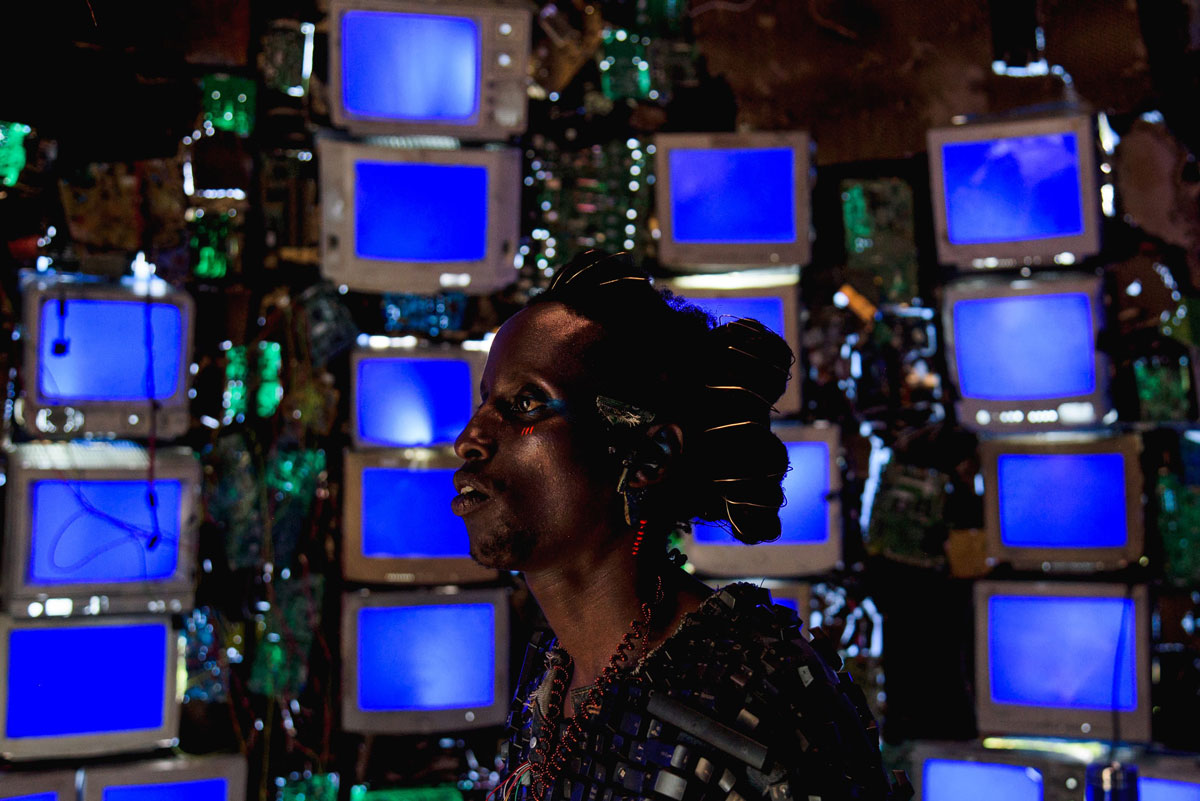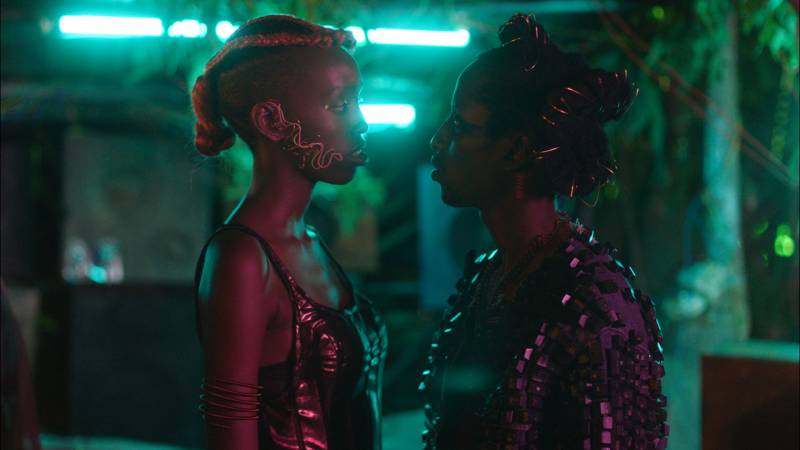Poet, musician, writer and actor Saul Williams’ wild, wonderful debut feature, Neptune Frost, is a thoughtful and joyful ode to Black liberation and Black revolution. And as expansive as that description may be, it is insufficient to encompass the vastness of Williams’ imagination and ideas.
Neptune Frost, which opens Friday, June 10 at the Roxie and June 17 at the New Parkway in Oakland (with a June 26 show at Alamo Drafthouse) after a heralded debut last year at Cannes and paeans at the Toronto, New York and Sundance festivals, depicts a world whose existence was first conjured (or at least hinted at) in Williams’ 2016 album MartyrLoserKing. (Say that title out loud a couple times, or put “Dr.” in front of it, and another set of associations, and interpretations presents itself.)
Set in the hinterlands of Burundi, and peopled with a visually arresting array of colorful characters who have an innate urge to break into song, the movie delivers a radical worldview in a familiar frame—as a journey, an escape, a quest. Indeed, one of the protagonists declares, after a good deal of weirdness has already ensued, “I walk to understand.”

Matalusa (Bertrand Netereste), a powerless coltan miner, runs away after the death of his aunt from natural causes, the murder of his brother by a brutal foreman and a sexual advance by the pastor who drops by to comfort him. (That’s just the first 15 minutes.) He eventually crosses paths with Neptune, an intersex hacker (played by both Cheryl Isheja and Elvis Ngabo) with considerable insights and powers. The characters allude throughout to a largely unseen landscape of war, authoritarianism and environmental decay, yet the movie carefully avoids crossing into post-apocalyptic dystopia.
So on its simplest level, Neptune Frost (in Kinyarwanda, Kirundi, Swahili, French and English with English subtitles) is a parable of exploitation and the pursuit of freedom, justice and autonomy. But it evokes a galaxy of wide-ranging possibilities that are within our reach so long as our imaginations are not constrained.





